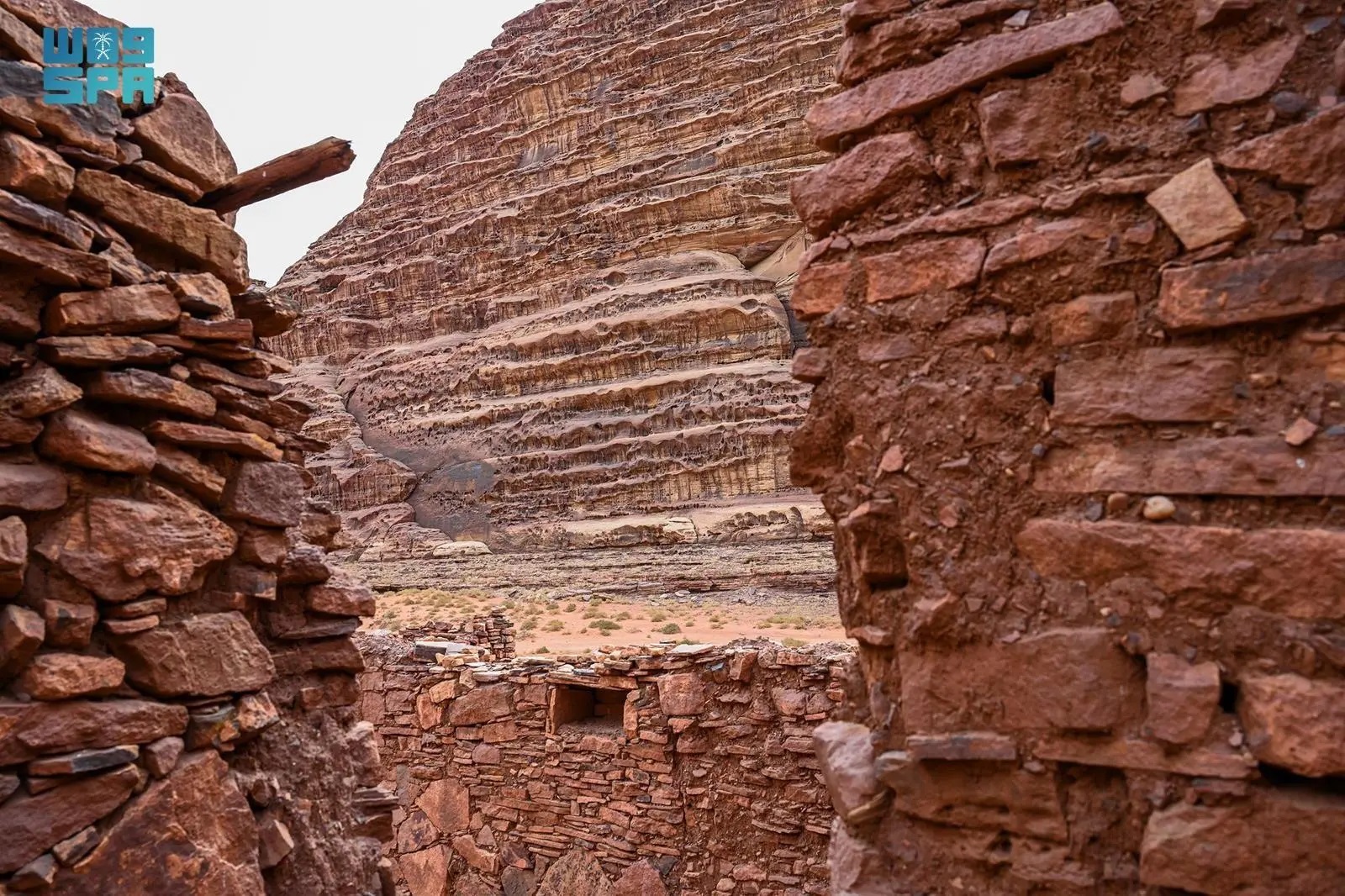
Alqan Heritage Village: Tabuk's Ancient Gateway to History and Culture
The ancient village of Alqan, one of the most prominent architectural and cultural heritage landmarks in Alqan Center, Tabuk Region, features clay and natural red stone structures topped with roofs made of tree trunks and palm fronds. It stands as a living testament to the center’s founding by order of the late King Abdulaziz in 1934, with the village’s 20 buildings originally allocated to the first state employees and several government offices.
According to the Heritage Commission, the village has been registered in the National Register of Architectural Heritage in Tabuk Region as part of the commission’s ongoing efforts to archive and digitize heritage sites across the Kingdom.
Below the village lies the Alqan Customs Port, established in 1965. In the surrounding area, ancient wells once served as a vital source of water for the town and its neighboring communities. Among the most notable is the “Abu Al-Alaq Well,” to which the name “Alqan” is attributed, believed to be its earliest name. Another account suggests that the name comes from the sediments that once clouded its waters.
Alqan Heritage Village is located about 170 kilometers northwest of Tabuk City. It is surrounded by towering mountains with unique formations and red dunes, creating a breathtaking and captivating landscape. The village was built atop a hill at the mountain’s foothills, forming an artistic urban fabric characterized by thoughtful design. The builders took environmental factors into account, such as wind direction and rainwater flow, reflecting the nomadic people's careful selection of the safest, most private, and ideal locations.
Alqan is also known for frequent snowfall during most winter seasons, making it a popular destination for winter tourism. Notably, one of the heaviest snowstorms recorded in Alqan occurred in 1945 and lasted for nine consecutive days. Another storm, documented in mid-Ramadan of 1965, lasted for seven days.








